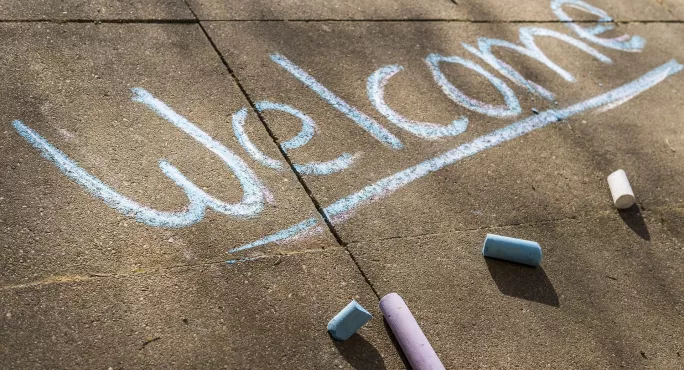“War is bad. It’s when they throw bombs out of planes. Sometimes I heard bombs. But I don’t remember. I only think of good things. I have a box in my head and put all the bad things in there and keep it locked. At the start in the UK, it was hard because we knew no one. I was shy at first, but I have many best friends here now. I like school…I like art best, with felt tip pens. I want to be a teacher. I want to be a teacher of everything!”
These words, spoken by Ahmed, age 9 - who comes from Syria but now lives in the UK (and who shared his experience with the charity Refugee Action) - are a powerful reminder of the people behind the headlines about child refugees. They also serve to reinforce the importance of education in turning around the lives of children who have seen and heard horrors that we can only imagine.
The Educational Institute of Scotland (EIS) is delighted, therefore, that a new campaign centred on welcoming child refugees has been launched in Scotland. The launch of Our Turn, the campaign from Safe Passage - which helps unaccompanied child refugees in Europe find safe and legal routes to sanctuary across Europe - is timely, coinciding as it does with the 80th anniversary of the Kindertransport, which enabled Jewish refugees to escape Nazi persecution and find sanctuary in the UK.
Our Turn is asking the UK government to welcome 10,000 at-risk child refugees over the next 10 years as part of a new child resettlement scheme, and calling on local authorities to pledge places in their communities for child refugees, which we very much hope they will do. However, enabling children to settle in Scotland is just the start; we would also advocate for more focus on these children and young people’s educational and pastoral needs.
Refugee pupils: Five ways to welcome children to your school
An asylum seeker’s story: ‘A group of schoolchildren showed me that Scotland is my home’
Kindness: Top of the agenda in Glasgow classrooms
Long read: Students need to be told of the horrors of genocide
Many children who arrive in Scotland alone and separated from their families do not speak English; learning the language is their greatest educational need. It is troubling, then, that the Scottish government’s 2018 teacher census shows that secondary schools in Scotland in 2017 employed only five teachers with English as an additional language (EAL) as their main subject, compared with 39 in 2008.
While we know that many local authority ASL (additional support for learning) services are employing EAL teachers, we are concerned about a mismatch between need and provision. For example, in one Scottish local authority there are only two full-time equivalent EAL staff and over 1,400 EAL learners. There were 226 per cent more school pupils in Scotland in 2018 with English as an additional language than in 2011. Clearly, more investment is needed in language learning.
Other concerns about refugee children’s education were revealed by 2018 research for What Works Scotland. The research found that overall, refugee children have positive perceptions of education, but it also identified a lack of specific funding for refugee education; a frequent shortage of resources for students’ support needs, including language fluency; and that bullying of refugee children is common. The research reported on the need for ongoing training for teachers on understanding the issues affecting refugee children; and the need to address teacher workloads, which impede the ability to meet the needs of refugee children. It also found that refugee children require additional support adjusting to a new educational culture and curriculum.
Child refugees, when separated from family, remain at great risk of trafficking, exploitation and marginalisation. We would like to see statutory guardianship services for unaccompanied refugee children, and the development of programmes that can offer nurture and build social integration. The firm view of the EIS is that once refugee children have been brought to safety, their needs must be met. We trust that efforts will be made by all concerned to ensure that Scotland becomes the best place for these children to grow up.
Jenny Kemp is equality officer for the EIS teaching union

